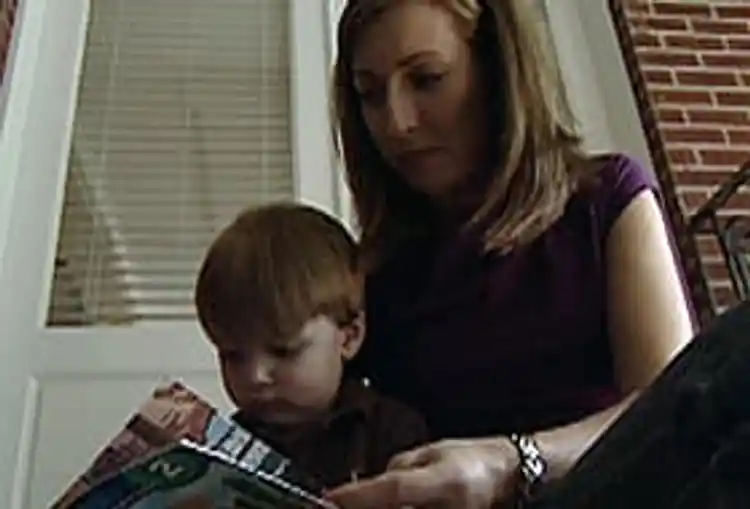Postpartum Depression (PPD)

Hide Video Transcript
Video Transcript
Narrator
Amber Koter-Puline cherishes the time she spends with her son Lorenzo now, but at the time he was born, her much anticipated joy had been eclipsed by despair… Amber Koter-Puline
I was in such a state of depression and anxiety that I would have simply been unable to survive in that way for much longer in my opinion. Narrator
Unable to survive a depressive mood disorder known as post partum depression or P-P-D. Amber had looked forward to the birth of her son and had carefully planned the details of the birthing experience, including a natural childbirth… instead she was forced to have an emergency cesarean section. Amber Koter-Puline
When the nurse came in and they asked if I was ready to see my baby and I said no. And that was something that naturally came out of my mouth. But afterwards I was horrified. Narrator
One of the more common triggers for depression is feeling overwhelmed by events or circumstances —any life-altering event, positive or negative, can tip the balance for those vulnerable to mood disorders… and for some the events don't even have to be that life altering. Mark Gilson, Ph.D
I have also seen people who have incredible wealth and have all kinds of things going for them; things that we can only dream about, who might make a suicide attempt because the chauffeur didn't show up… Narrator
Common signs of depression can include feelings of hopelessness, difficulty sleeping, anxiety, irritability, and lack of concentration. In the case of PPD, guilt may also play a major role… Amber Koter-Puline
…after several weeks of this process of dealing with the difficulties…breast feeding and the guilt surrounding another failure of this natural process that I thought would come instinctively to me ...that women had done for thousands of years and that somehow, in some way, I wasn't able to succeed at…I was really devastated. Narrator
PPD is different from the typical baby blues that can occur due to hormonal changes after birth. The lows are more profound and symptoms rarely go away without treatment Patrice Harris, MD
… if depression, or any disorder, is impairing their ability to take care of the baby then there's some heighten concern about that. Narrator
Amber knew her feelings were abnormal and got help. Since her recovery, she's made it her mission to help other moms with post partum disorders by becoming a, support group leader, creating a website and authoring a blog…not surprisingly she's become a bit of an expert on the subject. Amber Koter-Puline
When you hear someone who's actually survived this disorder say, I fully recovered, you're not alone, you're not crazy, I felt the same way that you're feeling, it doesn't make you a bad mom; it has a lot more weight than someone who's never experienced a post partum depression saying those things to a mom. Narrator
With proper support, PPD is often successfully treated. But like other forms of depression taking time to concentrate on your own health is key: For WebMD, I'm Damon Meharg. 